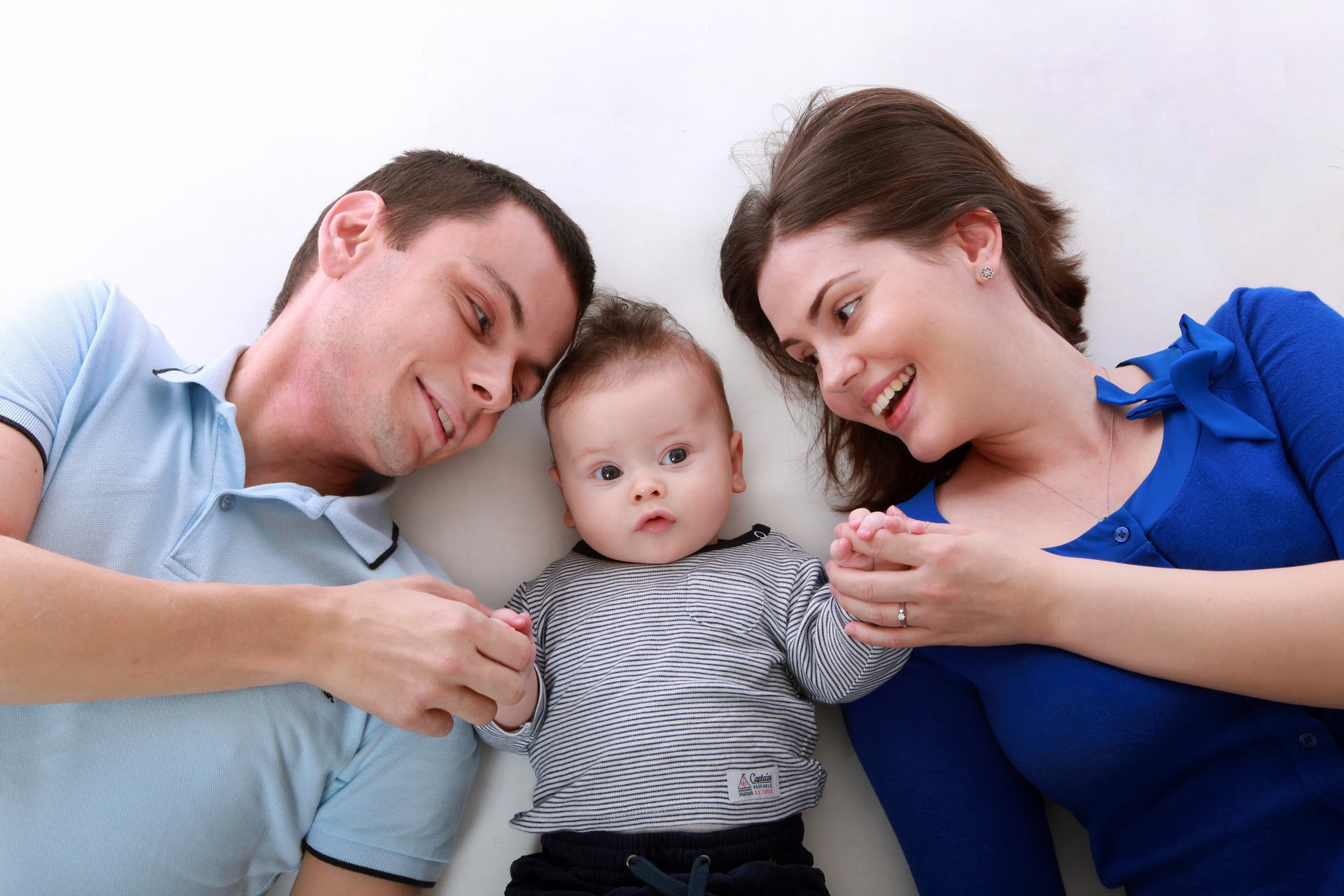In our 9th video, we are demonstrating a dialogue on family and relatives while trying to emphasize the nouns used for relatives.
Turkish is quite a rich language when it comes to naming relatives. There are a number of words that describe the relations with relatives. In fact, some of the words used for family members differ based on whether the person is from the maternal or paternal side of the family.
Nuclear Family

A nuclear family is composed of mother, father, and children.
Married couples are called “karı” (wife) and “koca” (husband) according to their relation to each other. However, a gender-neutral word, “eş” (spouse) is also commonly used. In other words, a man can call his wife as “karım” (my wife) or “eşim” (my spouse), and a wife can call her husband as either “kocam” (my husband) or “eşim.”
From the parents’ perspective, daughters are called “kız” and sons as “oğul.” For instance, someone who has a son/daughter can say, “Kızım var” (I have a daughter) or “Oğlum var” (I have a son).
Within the family, children are “kardeş” (sibling) of each other, which is another gender-neutral word. When a gender needs to be specified, girls are referred as “kız kardeş” (sister) and boys as “erkek kardeş” (brother). The way siblings address each other varies according to their age and gender.
Who is “abi?” Who is “abla?”

In a family, younger siblings calling their elder sisters as “abla,” and elder brothers as “abi” (short for “ağabey”) is a common and expected behavior. This can be interpreted as an indication of respect to the elders in Turkish family structure. Elder siblings, on the other hand, address their younger siblings with their names. As we talked about in the “Weekly Street Markets and Shopping” section, the words “abi” and “abla” are not specific to siblings in Turkey. Turkish people can sometimes address elder people they don’t know with these words. Generally, these are used in friendly and informal environments. In a formal conversation, as we mentioned earlier, addressing people with these words is inappropriate.
How relatives are addressed?
First of all, Turkish people give a high importance to family and familial relations and “respect for the elderly” is a very significant value in Turkish family structure. Addressing elders by their first names is an inappropriate behavior. As a matter of fact, such behavior almost never occurs. Only family members of close age (like siblings, cousins, etc.) address each other by their first names.
In Turkish, the terms describing the relatives are also the words used to address these relati
ves. For example, the sister of your father is “hala” (aunt) and she is addressed as such. These words can also be used together with the first names of the person such as “Zehra Hala, Meral Hala,” etc.
Names of relatives
For parents of your parents, literal translation of the globally used names “grandfather” and “grandmother” – “büyük baba” and “büyük anne” are not commonly used in Turkish.
Instead, in Turkish, maternal grandmother is called “anneanne” (mother of mother) and paternal grandmother is called and addressed as “babaanne” (mother of father). The grandfather on both sides is simply called “dede.” From the grandparents’ perspective, the child of their child is called “torun” (grandchild).
The brother of your mother is called “dayı” (uncle) and her sister “teyze” (aunt), while the brother of your father is called “amca” (uncle) and his sister “hala” (aunt).
In a family, a mother or father’s siblings’ wives are called “yenge” (sister-in-law) and husbands “enişte” (brother-in-law). In other words, the wife of an uncle is “yenge” and the husband of an aunt is “enişte”. The children of these people are “kuzen” (cousin) to each other. And someone’s siblings’ child is that person’s “yeğen” (niece – nephew).
Whether it is a man or a woman, the mother of someone’s spouse is “kayınvalide” (mother-in-law) and father is “kayınpeder” (father-in-law); however in Turkish family construction, both spouses are expected to address their in-laws as “anne” (mother) and “baba” (father), and most Turkish people adhere to this tradition. For parents, the wife of their son is “gelin” (daughter-in-law/bride) and the husband of their daughter is “damat” (son-in-law/groom).
There are a number of other words that describe family relations in Turkish; here, we tried to give examples of the most common ones.
As in many other cultures, the family system in Turkish society has gone through changes based on societal and socio-economic conditions. However, this change mainly influenced the lifestyle of families whereas family values were preserved to a large extent.
In a traditional Turkish family structure, one of the principal values is “mutual love and respect.” Youngsters are expected to respect their elders all the time while elders love and protect (look after) them. Furthermore, “helping each other,” “devotion to the family,” as well as “family ties” are among the other significant values.
In Turkish society, becoming of legal age at eighteen does not mean that he or she can separate from the family. Of course, those who are attending university or employed can live alone, but young people economically dependent on the family or those who are not attending any school living with their families is quite a normal behavior.
In addition, when the parents experience any health issues, children are expected to assist them, even assume the whole responsibility of their care. As seen from these examples, the relation between parents and children is quite binding among Turkish people.
The situations and examples given in this article are of course not applicable for each Turkish family, and only reflect the traditional structure of a Turkish family.
The relations, values, and behaviors within a family can change depending on the region, the socio-economic, cultural, and educational levels of the individuals. Therefore, it is possible to see both strictly traditional Turkish families and those who adopted a more modern lifestyle.
We will talk about other topics on family relations and Turkish family structure in the upcoming sections.
Ayşin Önder
All rights reserved.
This text or any portion thereof may not be copied without prior written consent.



Leave A Comment